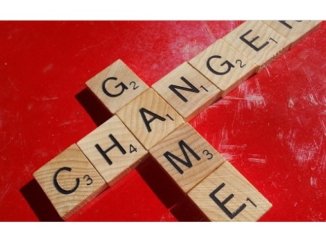
In an earlier blog post I talked about how we turned over 150,000 people around the world into quantum physicists by giving them access to a fun online game, Quantum Moves. By playing Quantum Moves, our players solved real research questions in quantum physics, and found solutions that were better than trained physicists and state-of-the-art algorithms could find.
That’s worth a pause.
Of course hard work went into turning quantum physics into something people can play with, without having to know anything about the complex equations and the baffling phenomena behind the game. But take my word (or better yet, try the game yourself!) that Quantum Moves is a tricky game and the players have to learn to control a wave that behaves in unexpected ways — exactly because of the quantum physics hiding underneath the surface. Yet they play, learn and soon begin to explore solutions that are much smarter than we initially proposed.
So how do our players do it?
We teamed up with our favourite psychologist Jana Jarecki to design a new game, Quantum Minds, to answer exactly this question. Jana is endlessly curious about how the human mind, with all its limitations, can be such an efficient problem solver. In her own words:
Cognitive science is the study of human learning, memory, attention, and decision making. A number of findings from this field indicate that the human mind can achieve rather accurate solutions to rather complex problems, such as categorizing objects or recognizing patterns. Sometimes, the mind can even outsmart machine-learning tools, generating solutions as good as (or sometimes better than) computer-generated solutions.
This is especially interesting considering the capacity limitations of the mind:
– Human working memory is limited — we forget things all the time, e.g. we write shopping lists rather than memorizing twenty groceries, because we can simply not keep everything in memory at once.
– Human attention is selective — we tend to focus on one dimension at a time rather than integrate a huge number of pieces of information at once.
– Usually, computers are quicker in explicitly solving complicated equations — we mostly have a hard time doing complex algebra actively and deliberately in our head.
Nonetheless, humans are doing well in many decision situations. Often, this is because the mind has plenty of experience through learning, trial-and-error, and feedback.

The collection of puzzles in Quantum Moves is a great example of a complex problem. The task in the game is easy enough to understand — you just move some liquid to a target area without spilling any on the way — but mastering it is not trivial.
The real twist is that quantum physics shows up subtly, making the wave behave in unexpected ways. This means that players are encountering something that is genuinely new to them. As a result, we can see how they tackle a task that is not only hard, but that they have no prior experience of.
The Quantum Minds game challenges our players with four quantum puzzles. This time, however, we have stricter criteria for unlocking one level after another. Players have to succeed in a level three times in a row to move to the next puzzle. This way we can be sure that a player has really learnt to solve the task, rather than just getting lucky.

We have some preliminary data from Quantum Minds and one of the striking results is how much people differ in their performance. Most people need to invest a good amount of time and effort to crack the puzzles, but some players just breeze through the four levels. Are these players especially smart or gifted?
Maybe, but Jana has an alternative theory.
The theoretical background for the hypothesis underlying the Quantum Minds game comes from a series of recent findings in cognitive psychology. While a number of early studies on human judgment and decision making in the 1940’s and 50’s tended to see human reasoning as biased and flawed, recent evidence points toward the mind as smartly limited.
In fact, humans actually rely on their limited capacity to make better inferences. When presented with a complex task or a difficult question, people resort to simple mental heuristics. In the same manner, we believe that the participants in the Quantum Minds game may have mental shortcuts which they use to learn to play the game. The players who achieve very high scores quickly and reliably may not be the players with the most complex or sophisticated strategies to play the game. Maybe they rely on a few selected but useful pieces of information in order to achieve high performance.
Figuring out these mental shortcuts could have a big impact in developing better algorithms for complex problem solving. Computers have a hard time figuring out what information is useful and what is irrelevant (though this is slowly changing with increasingly complex — and human-like — machine learning algorithms), which can make them very slow. We want to learn how humans extract relevant information from an abundance of data and use this to make our algorithms more focused on the important things.
Watch this space to see how well we tackle this challenge!
Want to try Quantum Minds yourself? By playing you will help us figure out how anyone can become a quantum physicist by playing games! Follow this link, download the game on your computer and in less than five minutes you will be contributing to our research project.
This article was written by Pinja Haikka on medium.com
https://medium.com/scienceathome/quantum-minds-how-to-build-a-quantum-intuition-27f8359d0230#.hkabxxsmm


